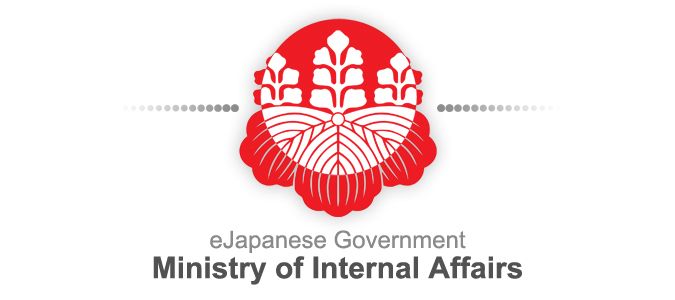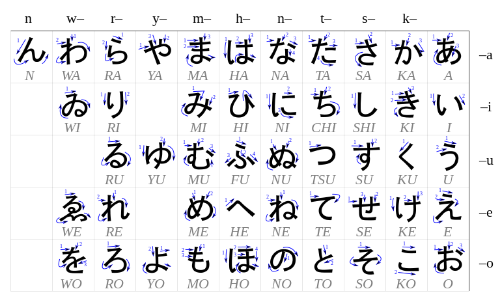[MoIA/MoE] Japanese Lessons 1&2 practice
 •
by
•
by William of Edenbury

Hello everyone o/
Today's Japanese article is not so much a lesson as a review. We will be looking at some simple words and sentences to practice our ability to convert them into Romanji, aka: Latin letters, and pronounce them. Do not worry about trying to figure out the grammar or sentence structures of some of the phrases I will use. We are not that far along and I am only including sentences to give everyone a taste of the next lessons.
Lesson one: Katakana, Hiragana, Romanji
Lesson Two: Pronunciation

Word Translation
Let us begin with some common words and adjectives you can use. Their Romanji version will be slightly farther down so as not to tempt you to look before you have tried
😛
We will only use Hiragana right now. Here is the chart:

1) わたし
2) かわいい
3) すごい
4) はい
5) いいえ
6) こわい
Ok give those a try and then look down here for the romanji version to see if you got them correct. Next to the romanji will be the meaning of the word
1) Watashi ---- I, Myself
2) Kawaii ---- Cute
3) Sugoi ---- Awesome
4) Hai ---- Yes
5) Iie ---- No
6) Kowai ---- Scary
*Pronunciation note: Double vowels create an elongated sound. Let us compare Kawaii and Kowai for example. Kowai sounds sort of like Kowa-aye while Kawaii sounds like Kawa-ee (Think of "ee" from the word deed).

Ok ladies and gentlemen lets get a little more complicated. We will now try to pronounce some sentences. The sentences I am about to use come from a Hatsune Miku vocaloid song. Click the Image to be taken to a youtube music video of it so you can hear the pronunciations.

This handy video even contains the romanji and an English translation for you.
Remember though, you only want the pronunciation for this review. Trying to figure out the grammar will require hours of research and give you a huge headache.
1) こい は せんそう
2) もう ゆきば が ない わ
3) この こい の ねつりょう
Here come the translations:
1) Koi Wa Sensou ---- Love is War (bonus points if you remembered that は
can be pronounced as Wa as well as Ha)
2) Mou yukiba ga nai wa ---- There is no where left to run
3) Kono koi no netsuryou ---- From the heat of this love

That'll be the end of the review for now. The reason I am cutting it rather short when we have a lot of material we can still cover is because of the difficulty level of the sentences. They are highly advanced, but I believe in pushing your limits in order to get better
🙂
Be sure to send me a message about anything you might not understand or have questions about. While we try our best, none of us are trained in teaching methods so these lessons might have spots where we forgot to explain a concept or got carried away and gave you something more difficult than you can work with. You can also feel free to ask about translations in the Vocaloid song's lyrics that we did not cover here.
I especially encourage you to post your questions in the comments. If you can't figure something out, I bet you there are a couple more people that couldn't either.
がんばって!
Ganbatte!
Good Luck!
~William of Edenbury
Minister of Internal Affairs
Minister of Education


Comments
pole~
v
v
that は tricked me 😃
Put at least 1 kanji / lesson. V
v
v+s